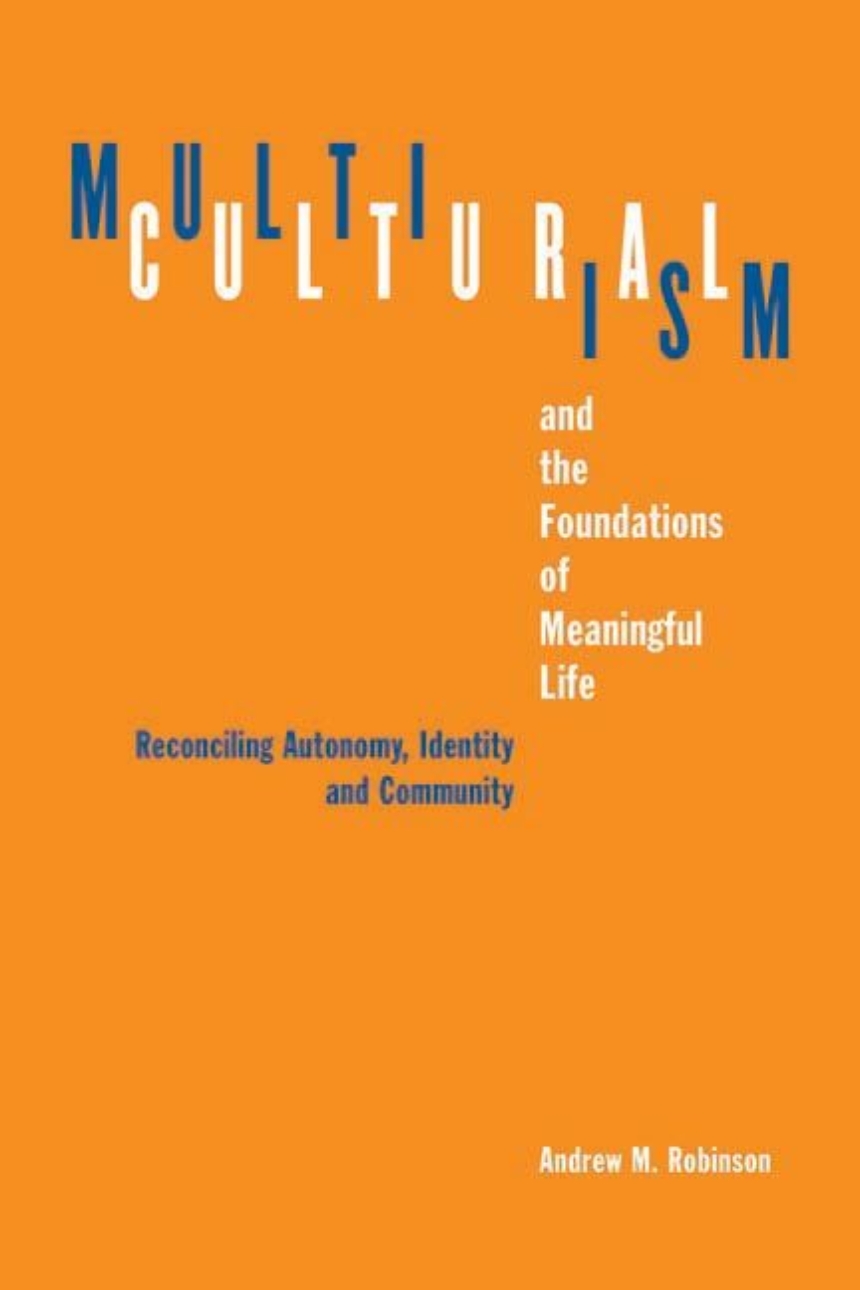University of British Columbia Press
Multiculturalism and the Foundations of Meaningful Life
Reconciling Automony, Identity, and Community
Distributed for University of British Columbia Press
Multiculturalism and the Foundations of Meaningful Life
Reconciling Automony, Identity, and Community
Theories of liberal multiculturalism seek to reconcile cultural rights with universal liberal principles. Some focus on individual autonomy; others emphasize communal identity. Andrew Robinson argues that liberal multiculturalism can be justified without privileging either. By appealing to the deeper value of meaningful life, he shows how autonomy and community are actually interdependent. He concludes by illustrating – with reference to national and ethnic minorities, indigenous peoples, and traditional communities – the policy principles that can be derived from this position.
An innovative account of the theory and practice of liberal multiculturalism, Multiculturalism and the Foundations of Meaningful Life will interest students, scholars, activists and policy makers working in areas of political theory, multiculturalism, indigenous peoples, and ethnic and religious minorities.
Table of Contents
Acknowledgments
Introduction
Part 1: Inspecting the Foundations
1 Why Return to Foundational Assumptions?
Part 2: The Foundations of Meaningful Life
2 Meaningful Life and the Conception of the Person
3 Justifying Cultural Accommodation: Identification, Communities, and Contexts of Value
4 Situated Autonomy and Socialization
Part 3: A Politics of Liberal Multiculturalism
5 Defining Communities and Justifying Accommodation
6 Designing Cultural Accommodation
7 State-Community Relations
Conclusion
Notes
Bibliography
Index

